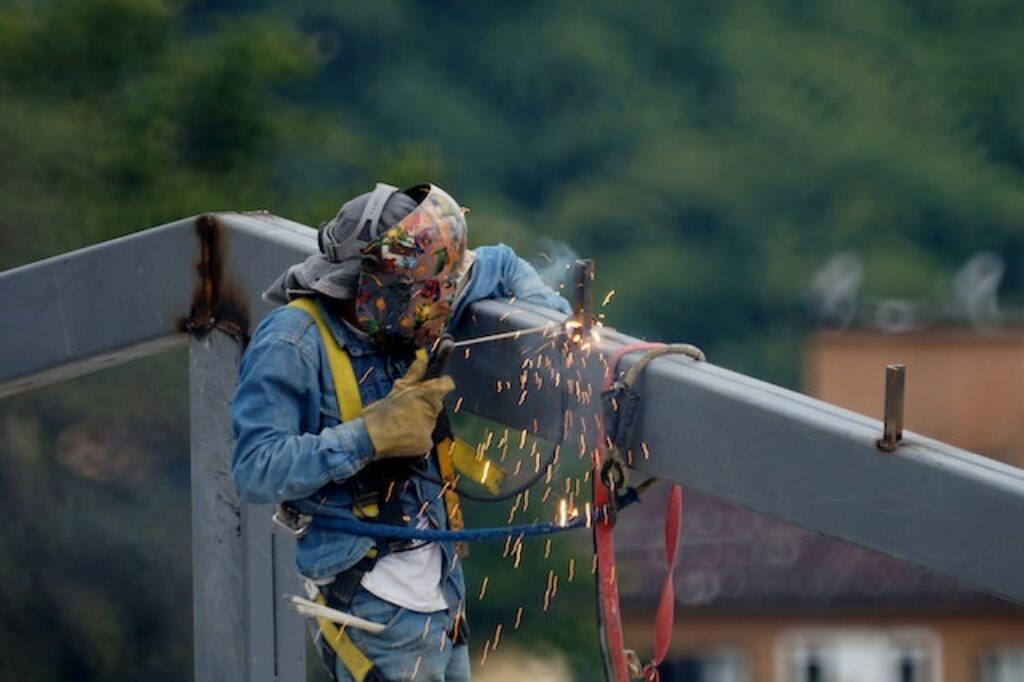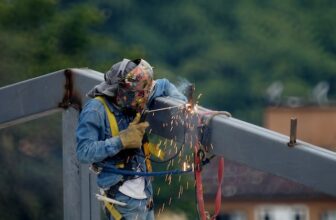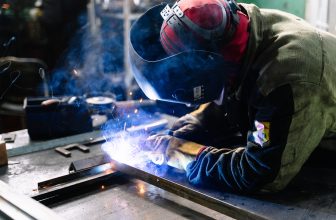Welding is a career that has been around for centuries and continues to be an essential part of many industries. Welding involves fusing two pieces of metal together using high heat and pressure, and it requires a high level of technical skill and precision. However, despite its importance and benefits, welding may not be the right career choice for everyone.
In this article, I will explore eight reasons why welding may not be the best fit for some individuals. I will cover physical demands, limited career advancement opportunities, technological advancements, limited work-life balance, economic factors, environmental factors, lack of creativity, and cultural stereotypes. By the end of this article, you will have a better understanding of what it takes to succeed in welding and be better equipped to make an informed decision about your career path.
Let’s dive into the first reason why welding may not be the right career for you.
Reason 1: Physical Demands
One of the most challenging aspects of welding is its physical demands. Welders spend long hours standing, bending, and crouching in awkward positions, which can take a toll on their bodies over time. Welding also requires the use of heavy equipment, which can lead to strains and injuries.
Welders must work in high-temperature environments and be exposed to bright flashes of light, which can cause eye strain and fatigue. The physical demands of welding can be particularly challenging for those who have pre-existing health conditions or physical limitations.
While some welders may find the physical nature of the job invigorating, others may find it difficult to keep up with the demands of the job over time. It is essential to consider your physical abilities and limitations before pursuing a career in welding.
Reason 2: Limited Career Advancement
Another reason why welding may not be the right career for everyone is the limited opportunities for career advancement. Unlike other fields, such as business or technology, where career paths are more varied, welding offers limited options for advancement.
In most cases, welders start as apprentices and work their way up to become journeymen welders, mastering different welding techniques and skills along the way. However, once you reach the level of a journeyman welder, the opportunities for career advancement are often limited. Welders may have the option to become supervisors or trainers, but there are few opportunities for promotions or lateral moves.
For some individuals, the lack of career advancement can be frustrating and limiting, especially if they have ambitions for leadership or management positions. If you are someone who values career progression and is interested in exploring different career paths, welding may not be the right fit for you.
Reason 3: Technological Advancements
Technological advancements are transforming every industry, and welding is no exception. With the advent of automated welding systems, 3D printing, and robotics, the demand for skilled welders is shifting. These technological advancements are making some welding techniques obsolete, while new welding techniques are emerging.
For instance, automated welding systems are becoming increasingly popular in industries such as automotive manufacturing, where robots can weld faster and with greater precision than human welders. This shift towards automation may limit job opportunities for manual welders, especially those who are not adept at using automated welding systems.
The emergence of 3D printing is also disrupting traditional welding practices. Some manufacturers are opting to use 3D printing instead of welding to produce metal parts, reducing the need for manual welding skills. While this may not eliminate the need for skilled welders, it is still important to stay abreast of technological advancements and to be open to learning new welding techniques to remain relevant in the industry.
Reason 4: Limited Work-Life Balance
Welding can be a demanding and time-consuming career, requiring long hours of work, sometimes in hazardous environments. Welders often work irregular schedules, including night shifts, weekend work, and overtime. This can lead to a lack of work-life balance, which can take a toll on both physical and mental health.
Welders who work on-site at different locations may have to travel frequently, which can further disrupt their personal and family life. This lack of work-life balance can lead to burnout and even cause welders to consider changing careers altogether.
It is important to consider your priorities and values when choosing a career in welding. If you prioritize a healthy work-life balance and prefer a more structured schedule, then welding may not be the right fit for you.
Reason 5: Economic Factors
Economic factors can also play a role in determining whether welding is the right career choice for you. While welding can be a lucrative career, earning potential can vary depending on the industry and location.
In some areas, the demand for skilled welders may be low, which can limit job opportunities and lower wages. Additionally, some welding techniques may become obsolete, further limiting job opportunities and potential earnings.
Moreover, the cost of education and training required to become a skilled welder can be a significant financial burden for some individuals. This can be a deterrent for those who are considering a career in welding but are not sure if it is financially viable.
If you are considering a career in welding, it is important to research the job market and earning potential in your area. It is also important to consider the cost of education and training and to weigh the financial costs against the potential earnings.

Reason 6: Environmental Factors
Welding can expose workers to a variety of environmental hazards, including fumes, gases, and noise. These environmental factors can impact job satisfaction and pose significant health risks to welders.
Exposure to welding fumes can cause a range of health problems, including respiratory issues, lung damage, and even cancer. Welders may also be exposed to high levels of noise, which can lead to hearing loss and other hearing-related problems.
Welders must take appropriate safety measures to mitigate these environmental risks. This can include wearing protective equipment such as respirators, earplugs, and helmets with appropriate filters. It is also important to ensure proper ventilation in the workspace to minimize exposure to welding fumes and gases.
Failure to take appropriate safety measures can lead to serious health problems, which can impact job satisfaction and even result in the need to change careers.
In addition to the health risks, environmental factors can also impact job satisfaction. Noise levels in welding can be extremely high, leading to stress and discomfort. The fumes produced during welding can be unpleasant to smell, and the smoke can obstruct vision, making it difficult to work efficiently.
Reason 7: Lack of Creativity
Welding is often viewed as a technical job that requires a high level of skill and precision. However, it may not be the right career choice for those who thrive on creativity and artistic expression.
While welding can involve creating unique and intricate metal structures, it is still a technical process that involves following set guidelines and procedures. This can limit the opportunities for creative expression and can be frustrating for those who are looking for more artistic freedom.
Individuals need to find a career that aligns with their interests and values. If creativity and artistic expression are important to you, welding may not be the best fit.
if you are interested in welding but still want to incorporate creativity into your work, there are opportunities to do so. For example, some welders may specialize in creating custom metal sculptures or artistic installations.
Reason 8: Cultural Stereotypes
Unfortunately, cultural stereotypes and bias can impact job opportunities and job satisfaction for women and individuals from diverse backgrounds in the welding industry. There is often a perception that welding is a “man’s job,” which can deter women from pursuing careers in welding.
Individuals from diverse backgrounds may face barriers in the industry due to cultural stereotypes and bias. This can lead to feelings of isolation and limited opportunities for career advancement.
The welding industry needs to promote diversity and inclusion. This can include initiatives to recruit and retain women and individuals from diverse backgrounds, as well as providing training and resources to promote a culture of inclusion and respect.
By promoting diversity and inclusion, the welding industry can benefit from the perspectives and experiences of a wider range of individuals, leading to increased innovation and creativity in the field.
Conclusion
In conclusion, welding may not be the right career for everyone. Factors such as physical demands, limited career advancement, technological advancements, limited work-life balance, and economic factors can all impact your decision to pursue a career in welding.
It is important to consider your personal values, priorities, and career goals when deciding on your career. If you are passionate about welding and are willing to embrace the challenges and opportunities that come with it, then welding can be a rewarding and fulfilling career choice. However, if you are not comfortable with these challenges or do not see yourself fitting into the welding industry long-term, it may be worth considering other career options.






